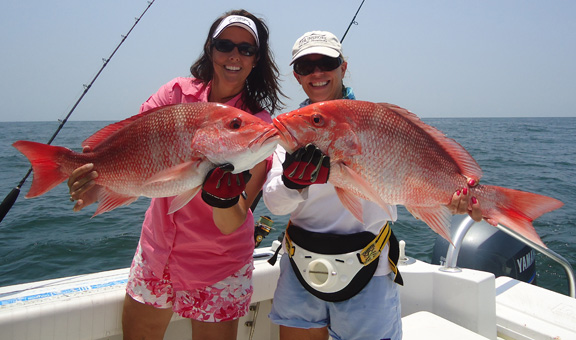
Move comes in reaction to non-compliance by Louisiana, Texas and Florida authorities.
Federal fisheries managers delivered a message to Gulf states in late March: If states continue to set red snapper seasons that do not comply with federal mandates, the feds will shut down fishing off those coasts within days of the official June 1 opening.
If the proposal published in a March 22 Southeast Fishery Bulletin is implemented, the federal season off the Louisiana coast would last for only nine days. Texas anglers would have a 12-day federal season, while the feds would shut down fishing off the Florida coast after 21 days.
Click here to read the full text of the bulletin.
That rankles Capt. Mark Scardino of Hard Times Charter.
“I can’t participate in the state season because I own a federal permit, and they’re only giving us nine days — ain’t that a shame?” Scardino said. “I’ve got trips booked (from June 1) out to June 27 right now, and I’ve got to refund those people at $1,200 a pop.”
The move is an obvious reaction to the three states’ announcements that they would go non-compliant with federal red snapper season structures.
Louisiana already has opened its season, which began on March 24 and is set to continue through September with three-day weekend fishing.
At that same time, the Louisiana Wildlife and Fisheries Commission has claimed regulatory power over waters extending out to three leagues (10.357 miles), a move that added more than seven miles of state waters to the traditional definition of the boundary with federal offshore waters.
Click here to learn more about the move to expand Louisiana’s state waters.
Federal authorities have not approved this change, and Scardino said he received reports that the U.S. Coast Guard stopped as many boats as possible at the old three-mile boundary during the Easter weekend. He said he understood 14 tickets were issued related to violations of the closed federal red snapper fishery.
However, Louisiana Department of Wildlife & Fisheries’ Randy Pausina said his office had received reports that only warning tickets had been issued. Nola.com reported on one such incident.
Pausina told Louisiana Sportsman today that his office was to speak with Roy Crabtree, National Oceanic and Atmospheric Administration regional manager, this morning in what he said were ramped-up negotiations on the issue of red snapper management.
“Negotiations are moving rather aggressively all of a sudden,” Pausina said.
He said all five Gulf states have finally agreed that red snapper should be managed by the states instead of as a single Gulf-wide zone, and he anticipated there being changes to the federal position in light of the newly united front.
“I’ve been confident the whole time that our plan makes sense; it’s a win-win-win situation,” Pausina said. “There are plenty of fisheries around that the states have been delegated to manage.
“We’re not asking to take (red snapper management) over and kick (NOAA) to the curb; we’re asking that … the things they can easily delegate without breaking the Magnuson-Stevens Act be given over to us.”
Pausina said season structures and bag limits could be handed over to the states to determine without going over the overall total allowable catch as set by the feds.
Regardless of what happens, the state season is set to continue through September — meaning anglers can continue landing snapper each weekend. State enforcement agents will not enforce federal regulations in the contested waters, but anglers fishing between three and 10.357 miles risk being ticketed by federal enforcement officers.
Pausina also said Louisiana anglers not wanting to risk being ticketed by federal authorities could leave out of Venice and run to Mississippi and Alabama waters even if the feds shut down the season off the Louisiana coast.
“(Crabtree) can’t discriminate against anglers,” Pausina said.
None of that matters to charter captains like Scardino, however; their boats are permitted by the federal government, so the guides must abide by federal regulations.
“That’s our living, man,” Scardino said. “I paid $9,000 for the permit, and we ain’t got no days.
“You’re damned if you do, damned if you don’t.”


